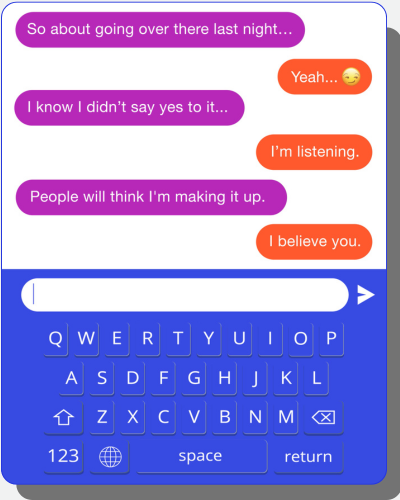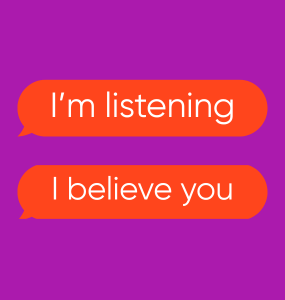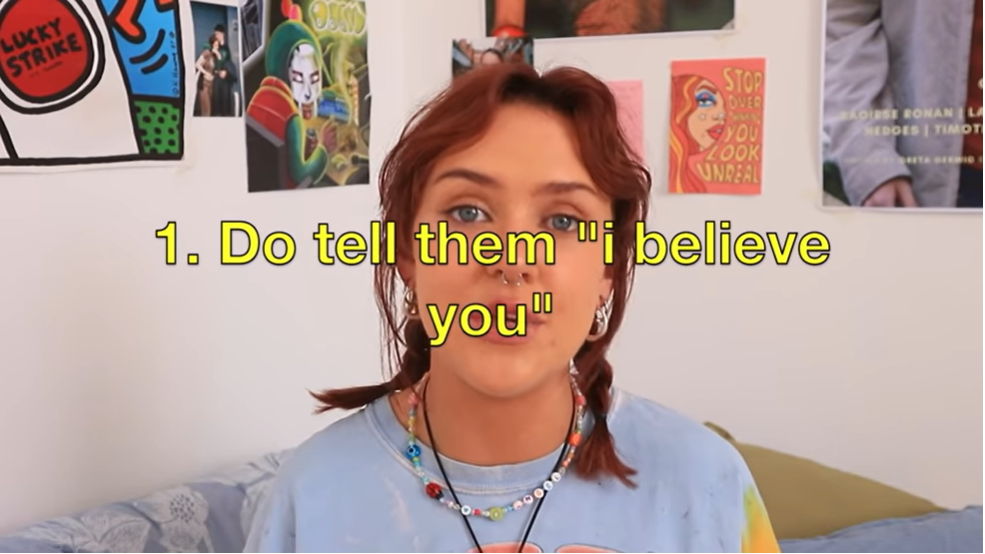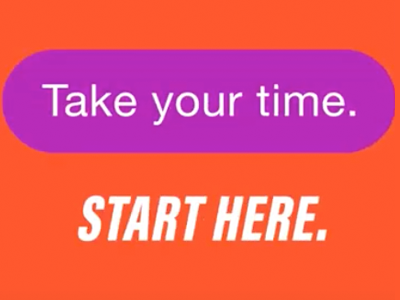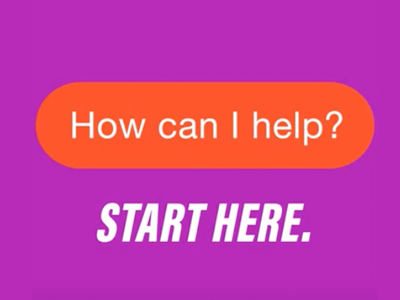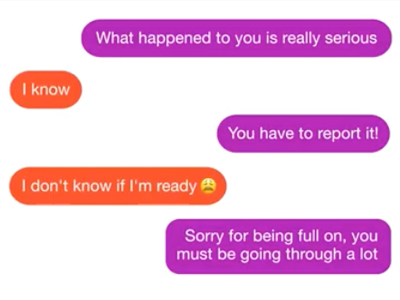Start Here, with our tips for receiving a disclosure.
Do listen and let them know you believe them – Opening up about an unwanted/non-consensual sexual experience is stressful. Let the person know you are listening, you believe them and will support them.
Do ask “What do you need right now?” – They might not know what they want to do right away, but what happens next needs to be their choice.
Do ask “How can I help?” – You could offer to find out about support services, like the ones on the back of this card, for when the person feels ready*.
Do look after yourself – Hearing about someone’s experience can be very difficult. Make time for your own self-care and wellbeing.
Don’t ask questions like “Were you drunk?/Are you sure?/ Why did you go there? – That sounds like you think it’s their fault. Try to listen without judgement.
Don’t react in the moment – Hearing about someone’s unwanted/non-consensual sexual experience can be upsetting – try to focus on their feelings, instead of your own.
Don’t rush them into sharing anything they don’t want to – They might not feel ready to tell you the whole story.
Don’t say “You have to report it!” – Pushing someone to take action they’re not ready to take can be disempowering and re-traumatising*.
*If the person disclosing is under 18, reporting is mandatory in Irish law.
“I Believe You”: Why your role hearing a disclosure matters
For survivors, the first experience of disclosure is so important. Getting a negative reaction from the person they tell can severely affect how they feel about what happened, and how they deal with the aftermath of the incident.
However, showing someone that you believe them and are there to support them can improve their experience dramatically, and have a positive impact on how they deal with what happened (like empowering them to report the incident).
“What do you want to do next?”: A national directory of support services for survivors
People who have experienced sexual violence and harassment have many different options for reporting the incident, as well as mental/physical health support services as they process their experience.
Visit our Help page for support services and helplines for survivors of sexual violence/harassment, and the people supporting them.
Build Your Knowledge: Take the Active* Consent eLearning module, Sexual Violence and Harassment; How To Support Yourself and Your Peers
Our “Start Here” disclosure tips give you basic language and information to support a friend, student or colleague who discloses to you.
If you want to learn more about this issue, take our Active* Consent eLearning module, Sexual Violence and Harassment: How to Support Yourself and Your Peers. This module introduces users to a more nuanced understanding of sexual violence, harassment and support services available to students who have had negative sexual experiences.
This module is free for anyone to access, and takes roughly 30-45 minutes to complete.
To learn more about our eLearning module, click here »
